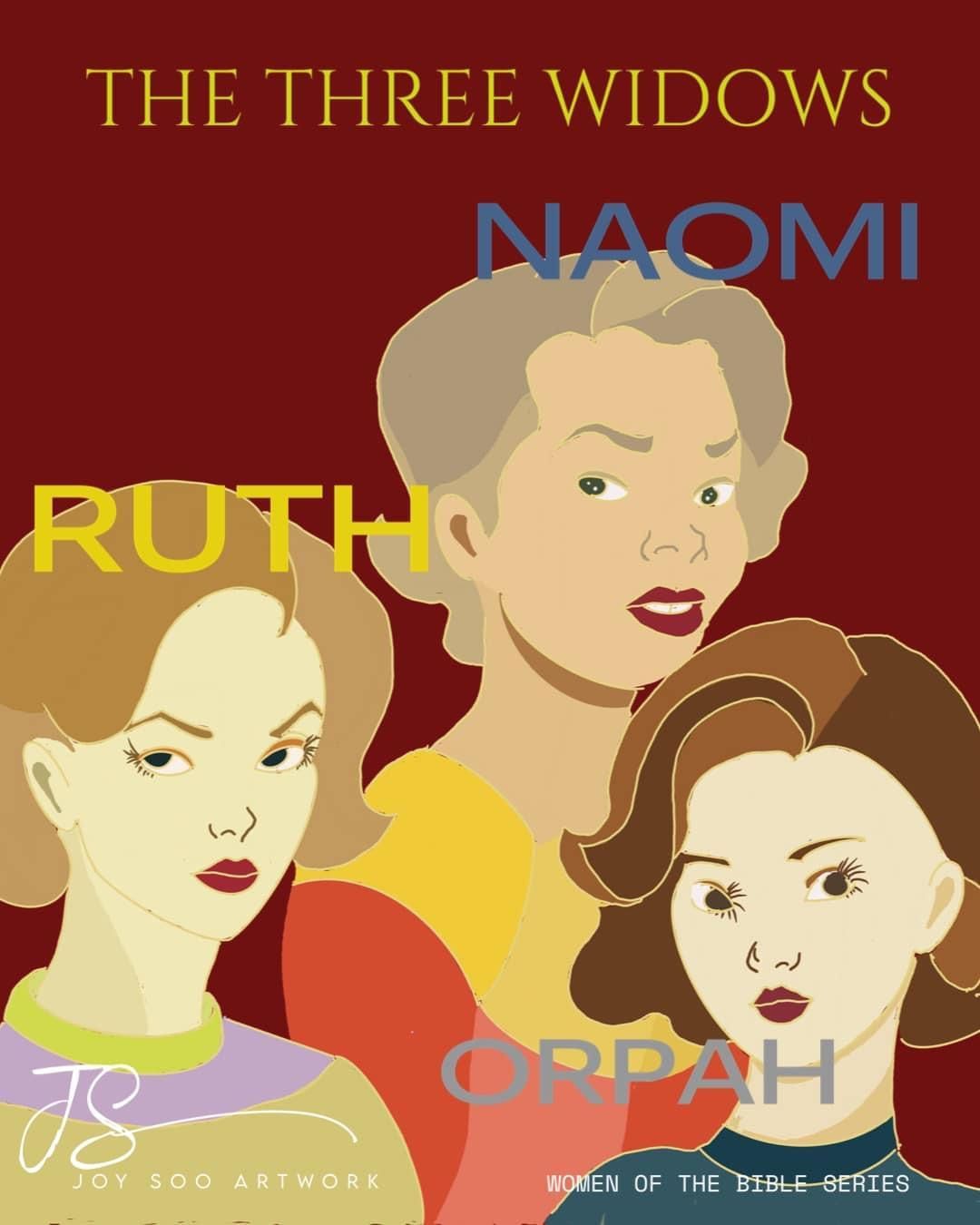
NAOMI, RUTH AND ORPAH, The Three Widows
In the days when the judges ruled Israel, a man named Elimelech, facing a devastating famine in Bethlehem, took his wife, Naomi, and their two sons, Mahlon and Chilion, to the land of Moab. They hoped to find food and safety, but the journey led them into unforeseen hardships.
In Moab, tragedy struck. Elimelech passed away, leaving Naomi a widow in a foreign land. Despite her grief, she found solace in her sons, who eventually married Moabite women named Ruth and Orpah. For a time, the family managed to find joy amidst their sorrows. However, tragedy struck again when both Mahlon and Chilion died, leaving Naomi with her two daughters-in-law but no means of support.
Devastated and longing for her homeland, Naomi decided to return to Bethlehem. She gathered her daughters-in-law and set out on the road. As they walked together, Naomi turned to Ruth and Orpah and said, “Go back, each of you, to your mother’s home. May the Lord show you kindness, as you have shown kindness to your dead husbands and to me.”
Orpah, torn but ultimately convinced by Naomi’s plea, kissed her mother-in-law goodbye and returned to her people. But Ruth, filled with determination and loyalty, clung to Naomi and declared, “Don’t urge me to leave you or to turn back from you. Where you go, I will go, and where you stay, I will stay. Your people will be my people, and your God my God.”
Moved by Ruth’s unwavering commitment, Naomi accepted her decision, and together they journeyed back to Bethlehem. Upon their arrival, the townspeople were surprised to see Naomi, who had returned empty-handed and grieving. She said, “Don’t call me Naomi," which means 'pleasant,' "call me Mara," meaning 'bitter,' for the Almighty has made my life very bitter.”
Upon returning to Bethlehem, Ruth supports Naomi by gleaning in the fields of Boaz, a relative of Naomi's late husband. Boaz notices Ruth's dedication and kindness and eventually marries her, ensuring Naomi's security and restoring their family’s fortunes.
As time passed, Ruth and Boaz were blessed with a son named Obed, who would become the grandfather of King David. Naomi, once bitter and empty, found herself cradling her grandson, filled with joy and gratitude for the kindness of God. The story of Naomi, Ruth, and Boaz became a testament to loyalty, redemption, and the unfolding of God’s providential plan, showcasing how love and faith can bring new beginnings even in the face of adversity.
DISCUSSION STARTERS
What can we learn from Orpah’s decision to return to Moab instead of following Naomi? How do our choices impact our relationships and future paths?
How does Ruth’s decision to leave her homeland and join Naomi reflect themes of identity and belonging? What does it mean to find a sense of belonging in a new place or community?
How does Naomi’s journey from bitterness to joy reflect the process of grieving and healing? What steps can we take to support others who are experiencing loss?
What does the concept of redemption in this story mean for us today? How can we seek or offer redemption in our own lives and relationships?
PRAYER
Gracious God,
We come before You with gratitude for the lives of Naomi, Ruth, and Orpah. Thank You for their stories of love, loyalty, and resilience in the face of adversity. Help us to emulate Ruth's unwavering commitment to those we love, just as Naomi nurtured and guided her. May we also learn from Orpah's difficult choice, recognizing that each path we take has its own significance.
Lord, grant us the strength to support one another in times of struggle and the wisdom to seek Your guidance in our decisions. May we embrace new beginnings with faith and hope, trusting in Your providence as we navigate our own journeys.
In Your holy name, we pray.
Amen.